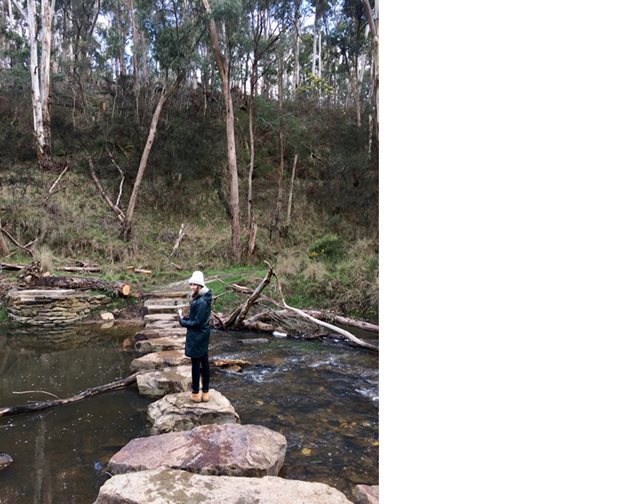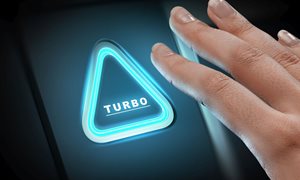
Although the word ‘scientist’ is relatively new, science itself has come a long way. In prehistoric times, ‘natural philosophers’ observed and studied the world and knowledge was transferred solely in an oral tradition. When we learned to write, our knowledge transfer improved, it speeded things up while also increasing accuracy. Paradigm shift after paradigm shift have subsequently changed our view of ‘facts’ and has increased our understanding of things. Being a scientist was contributing to knowledge, (industrial) revolutions and improving health care. Together we explored the world.
The last decades however, being a scientist has obtained an extra layer, a darker one. Science became associated with 80 hour work weeks, overly stressed postdocs and burned out PhDs. Do we ask too much of scientists? Has science speeded up too much? Do we want too many things at the same time? With the introduction of big data, suddenly everything is possible. At the same time, funding for research has dramatically decreased and also became competitive. Science has become more and more dependent on ‘impact’, ‘benefits’ and other measurable things. Studying topics ‘because you want to know how things work’ isn’t a thing anymore. You need papers, preferably with high impact, write personal grants, but also (inter)national collaborations and your name on collaborative grants. You need to go abroad for a while, increase your network, be an editor at a journal, organize conferences and oh, don’t forget the supervision of (PhD) students, teaching classes and an amazing media presence. We need to do it all and we need to do it perfectly. I sound like a millennial (well, I am one) but the pressure is increasing and we need to do something soon.
Well, here comes the good news: Dora is here! Generation Z readers amongst you probably all watched this children’s program, Dora the explorer. But DORA is also the name of a new movement in the scientific world. The San Francisco Declaration on Research Assessment (DORA), published in 2013, describes how funding agencies, institutions, publishers and other organizations should evaluate output of scientific research better. To date, 2068 organisations and over 16000 individuals have signed the declaration. In the Netherlands, the VSNU, of which the Radboudumc is part of, is one of them. The hardest part of this declaration however is not to sign it, but to put it into practice. And now we are changing the research structure in the Radboudumc , this is the perfect time to evaluate our recognition and rewarding system together with it.
To start the discussion, a RIMLSPeaks session on the topic of recognition and rewarding was organized last week. Over 40 senior scientists and staff members attended the online meeting, which was hosted by Rene Bindels and moderated by Malou van Hintum, a science journalist. Two guests from outside the Radboudumc attended as well: Rita Struhkamp from ZonMW, one of the funding agencies of the Netherlands and Rianne Letschert, the rector of Maastricht University, one of the leaders of this movement in the Netherlands. Together we spent 2,5 hours discussing the topic of rewarding and recognition, team science and leadership and I felt lucky enough to attend the session as well, in order to give the perspective of a younger scientist in the middle of all the crazy pressure.
As I learned in all my science communication and presentation practice, let’s start with the take home message: the future is looking bright! Even though it sounds a bit Utopian, the scientist in the future won’t need to do it all. Not all the papers with only high impact factors, all the students AND all the teaching. Not all the leadership courses, the grant writing AND the media attention. Why not have a profile with some strengths and team up with scientists with different profiles? For all those that are familiar with radarplots (which are so hard to read and you only actually use to look smart), here’s one
Source: ‘Recognition and rewards’ statement VSNU
In the future, diversification and science profiles will be a thing. You can have some strengths at the beginning of your career and work on others during. For example, you can spend most hours on research in your early years (as you do as a PhD student) and develop teaching skills later. If you like science communication, work on your media presence! If you are a born leader, start early. You don’t have to be good at everything at the same time, which saves you much time to do the things you want to do but then without the time pressure. Isn’t that great news? So far, I have always felt like the failed scientist, as I don’t want to work 80 hours a week and I have hobbies on the side, such as blogging. Good news that my blogging and interests in communication is now a strength; look at me writing this for you guys.
But how will scientists actually be rewarded and recognized if not using this list of H-indexes, teaching hours, completed PhDs and other measurable things? This was one of the hardest topics in the discussion, as measurables are easy and comparable. But the future is really in adding other ways of recognition and rewarding, for example using a narrative. What is your story (hey, didn’t I write a blog about this before?), your vision in science, what drives you and what do you see in a good team? What is your passion and makes you want to study what you study? How do you see your impact in the future, even though that might be decades away? And how do your teammates actually think about all this? There is a small danger of creating scientists that can write pretty or present nice, but in the end, Team Science is the most important and in a great team, you will be recognized too.
All in all, the afternoon was filled with discussions about academic leadership, Team Science and how to reward and recognize the success of a team while not forgetting about the individual. And while we were discussing all this and we all got excited, we also realized that we need the rest of our teammates across the scientific world to join us in this adventure too. We might want to be the first to set foot on this new land, but we need the international science world to join us in order for it to work. Otherwise it will be lonely in this newly explored world.
Well, I at least have a lot to think about, but also I feel some sort of relief. If science becomes a collaboration between all kinds of different people, we can emphasize each other’s strengths, use it for the team and not try to do everything perfectly ourselves. That will save us time, lift some of the pressure and hopefully will lead us to do more of what we love: explore.

A photo of me exploring the world in Australia, where I worked from 2018-early 2020.
When we need to go abroad for science, I better enjoy it!
Related news items

Grants for heart and kidney research Two awards to Radboudumc in Open Competition ENW-XS
21 July 2022Two researchers from the Radboudumc receive a grant from the NWO within the Open Competition of the Exact and Natural Sciences. They are Thijs Eijsvogels, who studies the heart, and Pieter Leermakers, who studies the kidneys.
go to page
Veni grants for RIMLS researchers
16 December 2021 NWO has awarded 89 promising young scientists Veni funding of up to 280,000 euros. Three of them are from Radboud Institute of Molecular Life Sciences (RIMLS). They can develop their own research ideas over a period of three years. go to page.aspx?width=439&height=263&ext=.png&type=BlockColumn1Zoom1)
Vote for the RIMLS Supervisor of the year
7 December 2021This is your chance to vote for your favourite candidate for supervisor of the year! Support and promote your ideal supervisor from the three nominees: Siroon Bekkering, Gerald Verhaegh and Jo Zhou. Please submit your vote the 20th of December 2021 at the latest.
go to page
Technology saves lives! 1.9 million euros from the Heart Foundation for developing smart watches
17 November 2021 Niels van Royen is proud to be part of this consortium, initiated by Judith Bonnes, to develop a wrist band for early detection of cardiac arrest. Together with Erasmus, Reinier de Graaf and Corsano Health. go to page
Tiny blood vessels, big problems Radboudumc receives grant for international collaboration
3 November 2021 The Radboudumc, together with the University of Cambridge, receives a grant of €1.8M from three collaborating cardiac foundations for international research into the small blood vessels in the brain. This study will be led by Neurologist Frank-Erik de Leeuw and internist Niels Riksen. go to page
